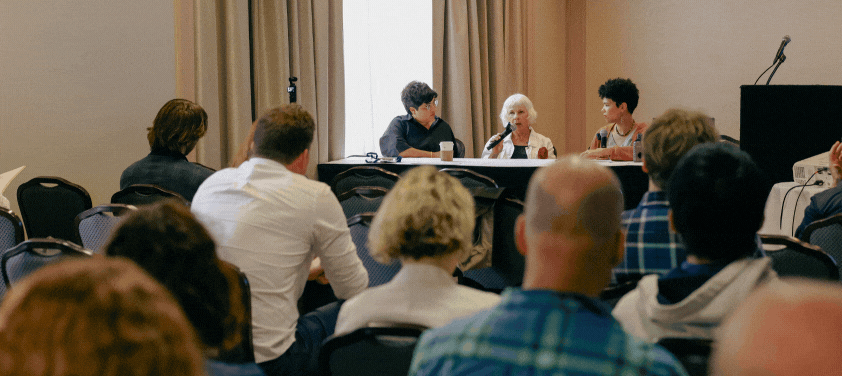Through quiet consistency and relentless curiosity, Danny Wind turned everyday observations into lasting change. Their story shows how small steps—and a Strong Towns membership—can reshape a place and a person.
Read MoreBecoming a Strong Towns member is taking a step from “I believe this” to “I am going to make this a reality.” Here’s how one city staff member decided to take the leap.
Read MoreEven as cities edge towards bankruptcy, crossing the street remains risky, and property values climb far out of step with wages, Strong Towns has built a movement that’s ready for this moment.
Read MoreIn an increasingly chaotic world, just a few Strong Towns members can have a huge impact on a community, and on communities across the continent.
Read MoreDanny Lapin proves that technical expertise and Strong Towns thinking are a powerful combination. His work is not always flashy. But it is real, and it makes a lasting impact on his city.
Read MoreLorelei Bailey is a Strong Towns member and Local Conversation leader from Artesia, California. Her story proves that you don’t need to be an expert to lead change—you just have to care enough to act.
Read MoreWhen systems fail, the instinct is to wait for someone with more authority to fix it. We know better. The cavalry isn’t coming. But that’s okay—because we’re not powerless. We can do something today.
Read MoreWhen you recognize that things are broken, you have two options. You can wait helplessly for someone else to fix them, or you can start rebuilding the systems closest to you.
Read MoreIn this episode of the Strong Towns Podcast, Chuck explains how election years affect a nonpartisan nonprofit like Strong Towns. It’s kind of ugly, but it doesn’t change our mission.
Read MoreLike many Strong Towns advocates, you may struggle with imposter syndrome, feeling like you’re not qualified enough to talk to city officials and staff about changing the way cities are designed or operated. But it’s essential that you keep speaking up. Here’s why.
Read MoreAll of the land used in cities can be divided into two categories: Places and Non-Places. Places are productive destinations, while Non-Places are unproductive padding between destinations. Once these Places and Non-Places are marked on a map, it becomes obvious how much land cities waste on Non-Places.
Read MoreCollaboration (or community input) is discussed at great length within the urban planning profession, but it’s often lost in actual practice.
Read MoreStrong Towns ideas have started permeating the wider culture at an increasing rate. But even as many cities and organizations embrace the movement, others twist it to serve their own agendas. Now more than ever, the movement needs advocates who uphold the true principles of building strong towns. It needs you.
Read MoreThousands of elected officials and people who work in local government want to make their streets safer. Here’s how you can help them do that.
Read MoreChuck is joined by Norm Van Eeden Petersman, Strong Towns’ director of membership and development, in this special Member Week episode to discuss the history of the Strong Towns movement and how members have brought it to heights Chuck never could’ve imagined.
Read MoreToday, host Abby Newsham is joined by Norm Van Eeden Petersman, the director of membership and development for Strong Towns, to discuss a recent resurgence of interest in mixed-use neighborhoods that has led some cities to allow for small corner stores even in residential-only neighborhoods.
Read MoreWhy is it that when a place is [pick one: walkable, bikeable, beautiful, lovable, inviting, human-scale], it so often gets coded as being “gentrified” and therefore elitist? When only the rich can afford nice places, the solution isn't to stop creating such places but to create vastly more of them.
Read MoreAt Strong Towns, we're very conscious of the words we use and the way we tell stories, especially those involving car crashes. It's not because we're trying to be dramatic; it's because we're trying to change the conversation entirely. And you play an important part.
Read MoreThe U.S. is in a massive housing bubble fueled by widespread fraud. With banks incentivized to look away and Wall Street and Washington incentivized to keep housing prices artificially high, a bottom-up approach is the only hope for bringing sanity back to the housing market.
Read MoreIt's difficult to find an accurate political label for Strong Towns. That’s because the way that we as a society talk about politics is structurally dysfunctional. A new, more nuanced way of talking about politics can help us better understand the movement — and how it unites people from all walks of life.
Read More



















